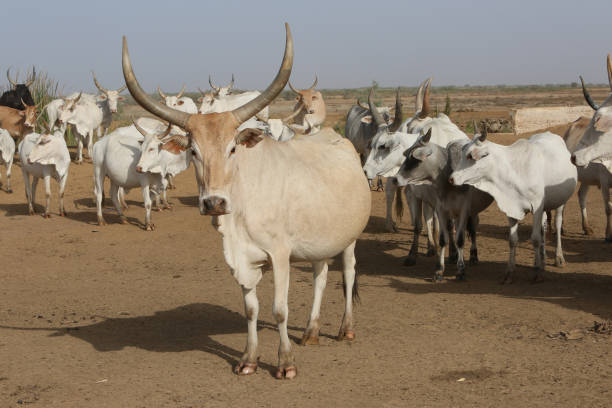Addis Ababa, 23 March 2025 (ECA) — With a staggering 129 million head of livestock, Chad ranks among Africa’s and the world’s top livestock nations. For years, it has fueled the meat markets of Nigeria, Cameroon, and Congo. Yet most of this trade is in live animals, meaning value addition and job creation happen elsewhere.
While Central African countries import over $350 million in processed meat and offal annually, the total regional livestock trade barely reaches $50 million—a missed economic opportunity Chad is now determined to seize.
A New Vision: From Pastoralism to Processing
For generations, Chad’s livestock economy has relied on extensive pastoral practices—efficient but vulnerable to climate shocks, insecurity, and poor infrastructure. But Chad’s geography tells a different story: the country is a natural trade hub, linking North, Central, and West Africa.
Amid rising regional meat demand and instability in neighboring countries like Sudan and Niger, Chad launched an ambitious industrial transformation in 2022—with ARISE Integrated Industrial Platforms (ARISE IIP) as its strategic partner.
Together with the Chadian government, ARISE IIP formed Laham Tchad, a public-private venture designed to position Chad as Africa’s next processed meat powerhouse. Backed by $790 million in investment, the initiative supports the Sustainable Development Goals—including poverty reduction (SDG 1), decent jobs (SDG 8), and sustainable industry (SDG 9).
The Industrial Meat Engine: Starting in Moundou
At the heart of this shift is the Logone Abattoir Industrial Complex in Moundou. This modern facility can process 200 cattle and 400 small ruminants daily, while employing 280 people and meeting international sanitary and cold-chain standards.
But Moundou is just the beginning. Laham Tchad is developing six more Special Economic Zones across the country—in Dermaya, Dourbali, Sarh, Amdjarass, Abéché, and Ati—to build a national industrial network. The goal: $2 billion in revenue and 35,000 jobs by 2035.
“Viand’Or”: Africa’s Answer to Imported Meat
Through its premium brand Viand’Or, Chad is elevating meat quality with products sourced from extensive, eco-friendly livestock farming. These high-standard cuts offer African consumers an organic, traceable, and affordable alternative to imports from Brazil and India.
Demand is rising fast:
-
Nigeria, Chad’s top livestock buyer, is poised for processed imports if trade barriers ease.
-
Egypt, impacted by Sudan’s crisis, now imports Chadian meat by air.
-
Gabon and Congo receive shipments via refrigerated trucks.
-
Gulf states, especially Kuwait and the UAE, have shown strong interest in Chadian camel meat.
Beyond Meat: A Full Supply Chain Transformation
The benefits of Chad’s meat industrialization ripple far beyond abattoirs. The initiative stimulates:
-
Local feed production
-
Leather and animal by-product industries
-
Transport and cold-chain logistics
-
Stable income streams for pastoralists, helping protect them from market volatility
By shifting from live animal exports to processed goods, Chad captures more value at home—creating jobs, strengthening supply chains, and modernizing its agricultural base.
A Model for Africa’s Economic Breakthrough
This transformation helps Chad break the “Dutch disease”—a cycle where countries export raw goods only to import the finished products at a premium. Instead, with ARISE IIP’s proven model (already active in 13+ African nations), Chad is building an industrial economy rooted in local resources.
As the African Continental Free Trade Area (AfCFTA) takes shape, Chad is positioning livestock as a catalyst for intra-African trade and sustainable growth.
Livestock, once seen as a traditional and underdeveloped sector, is now at the center of Chad’s economic renaissance. And with bold investments, visionary partnerships, and a continental market to serve, Chad is redefining how Africa feeds itself—and how it builds its future.



